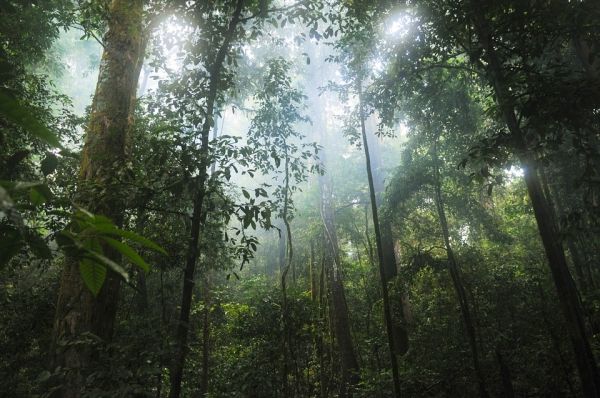Central Amazonia’s tall trees are impacted by periods of high maximum temperatures and then shed their leaves and branches. With the increase in deforestation, the smaller, fragmented remaining forests have higher temperatures, which in turn exacerbate the negative warming effects on the tall trees.
A new study published in Nature Communications led by researchers in the University of Helsinki, in cooperation with scientists across the globe, elaborates on the impact rising temperatures have for the Amazon rainforest. The study shows that tall trees in Central Amazonia are impacted by maximum temperatures of the understory above 35 degrees.
If very high greenhouse gases (GHG) and CO2 emissions double from current levels by 2050, maximum temperatures in the Amazon will likely exceed 35 degrees Celsius at least 150 days a year by end of century, according to the IPCC’s Sixth Assessment Report.
The canopies of old-growth, intact forests usually buffer the high temperatures observed in the understory to some extent. However, when the temperatures in these underlying layers reach 35 degrees, as they usually do in August and September in many regions, the tall trees then shed their leaves and branches.
Read more at University of Helsinki
Photo Credit: stokpic via Pixabay


